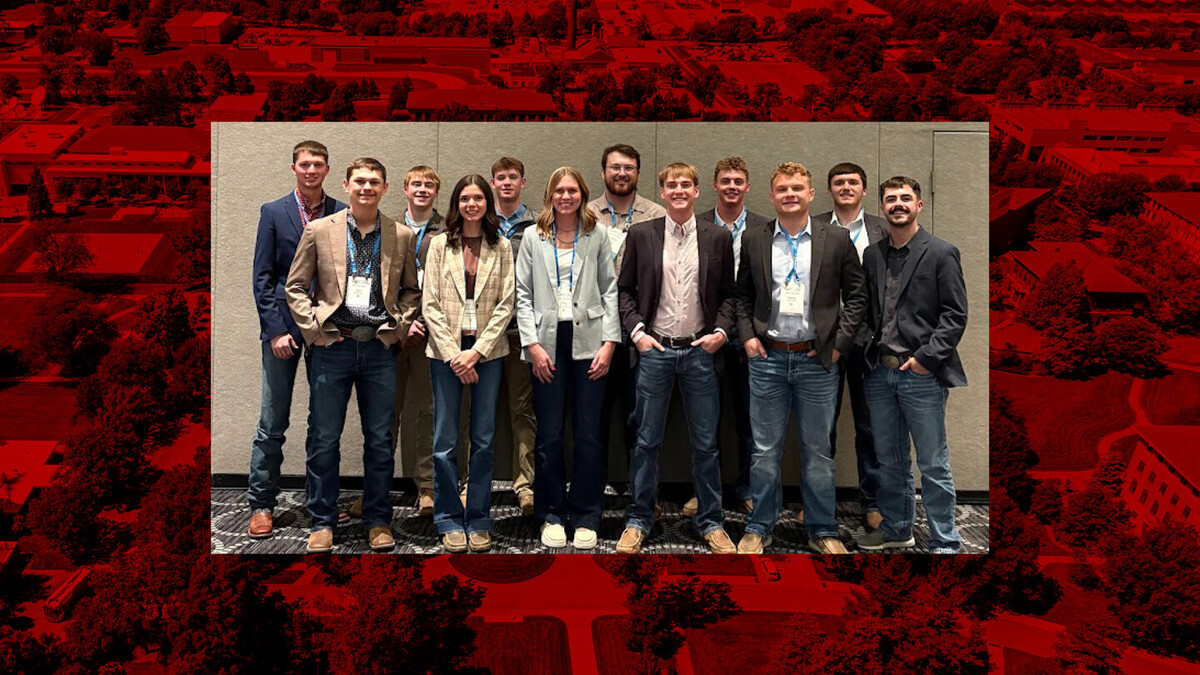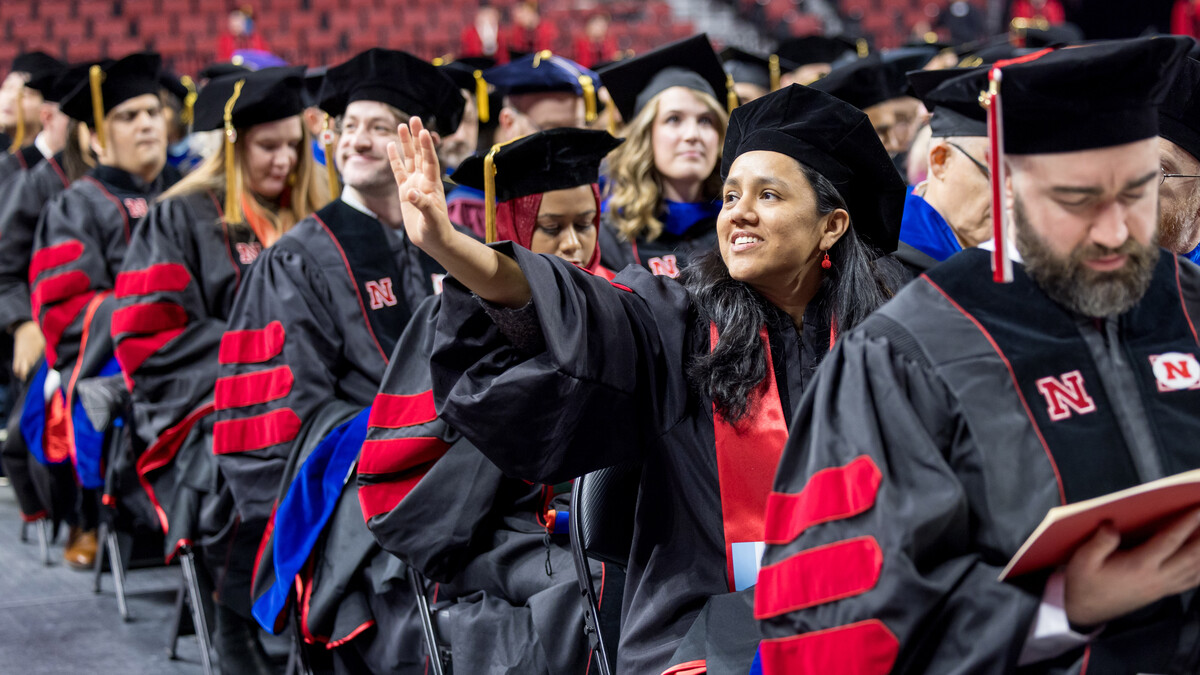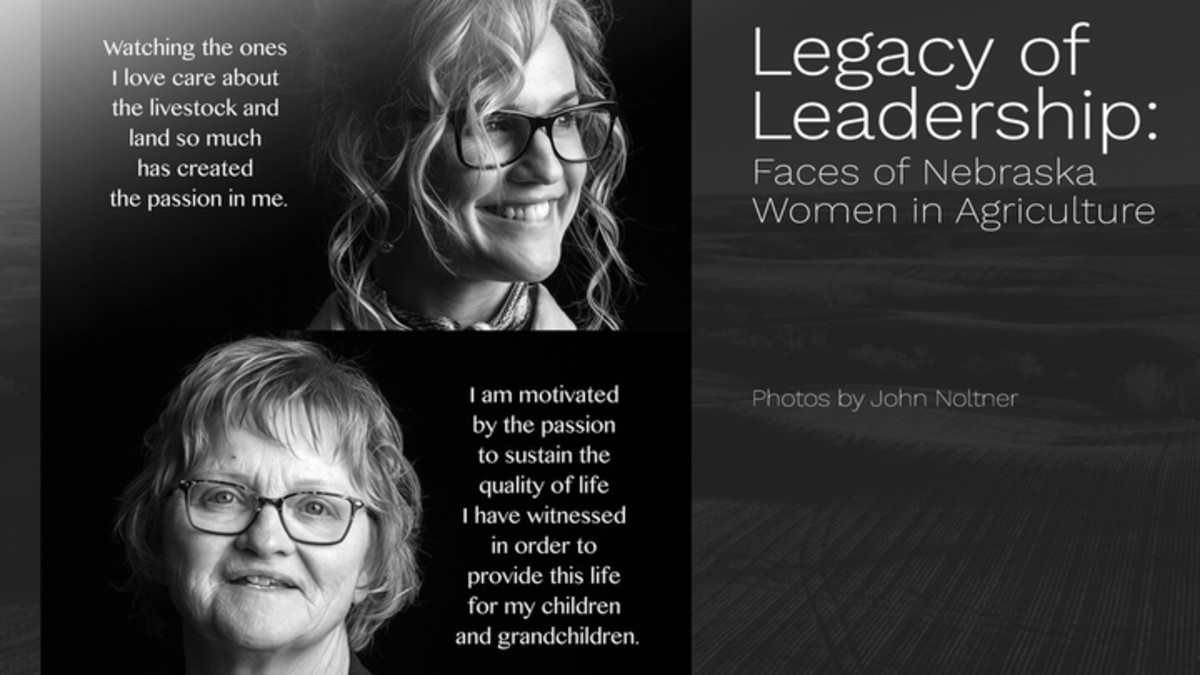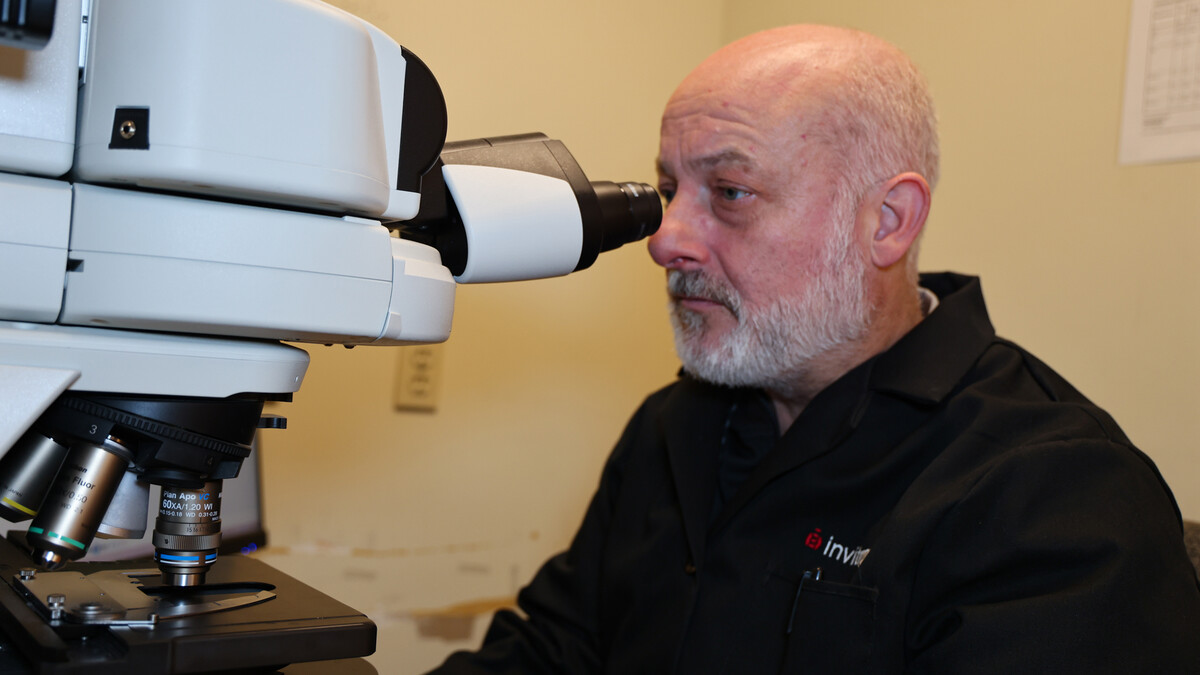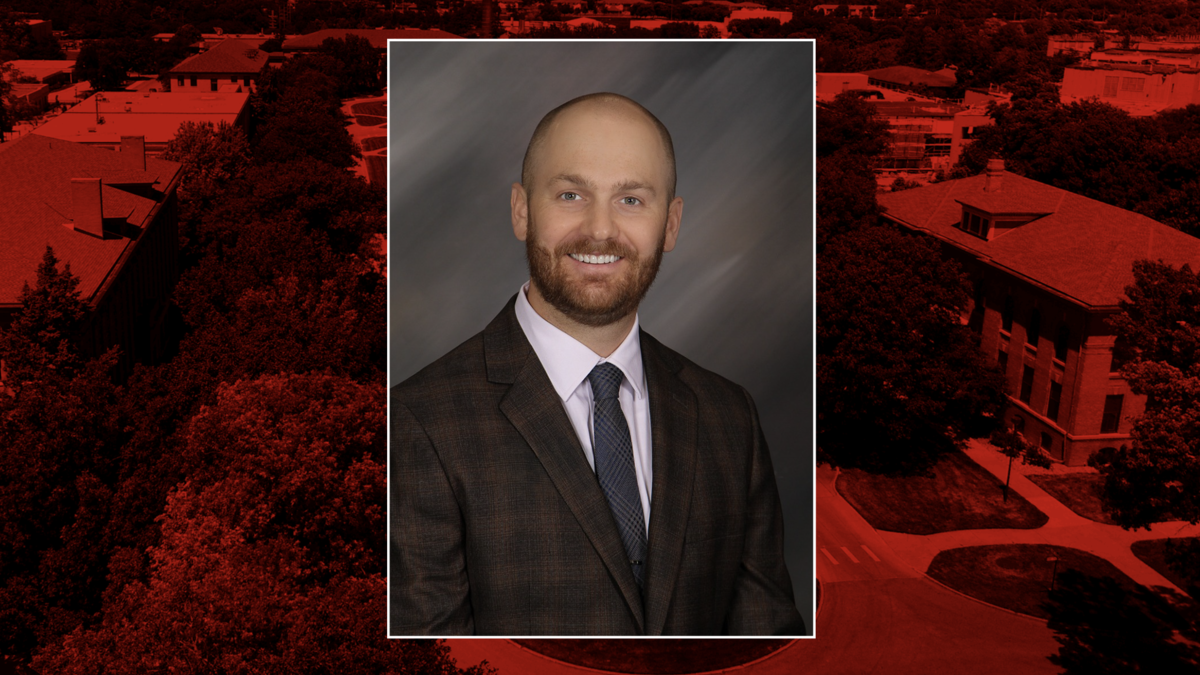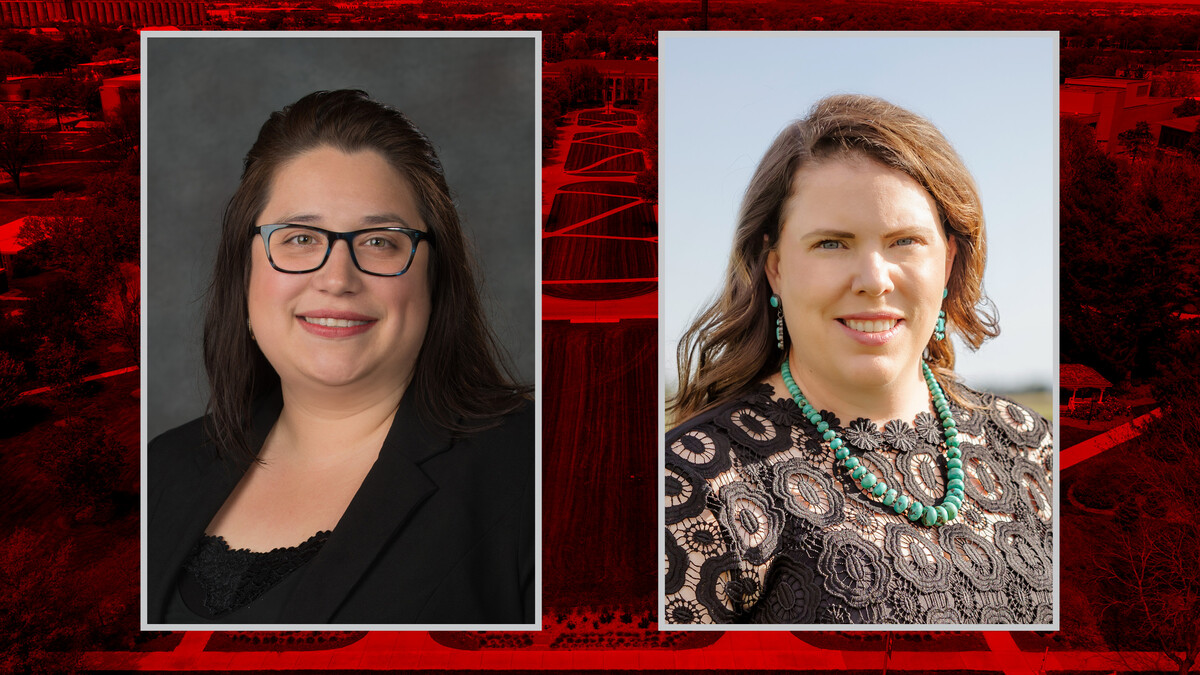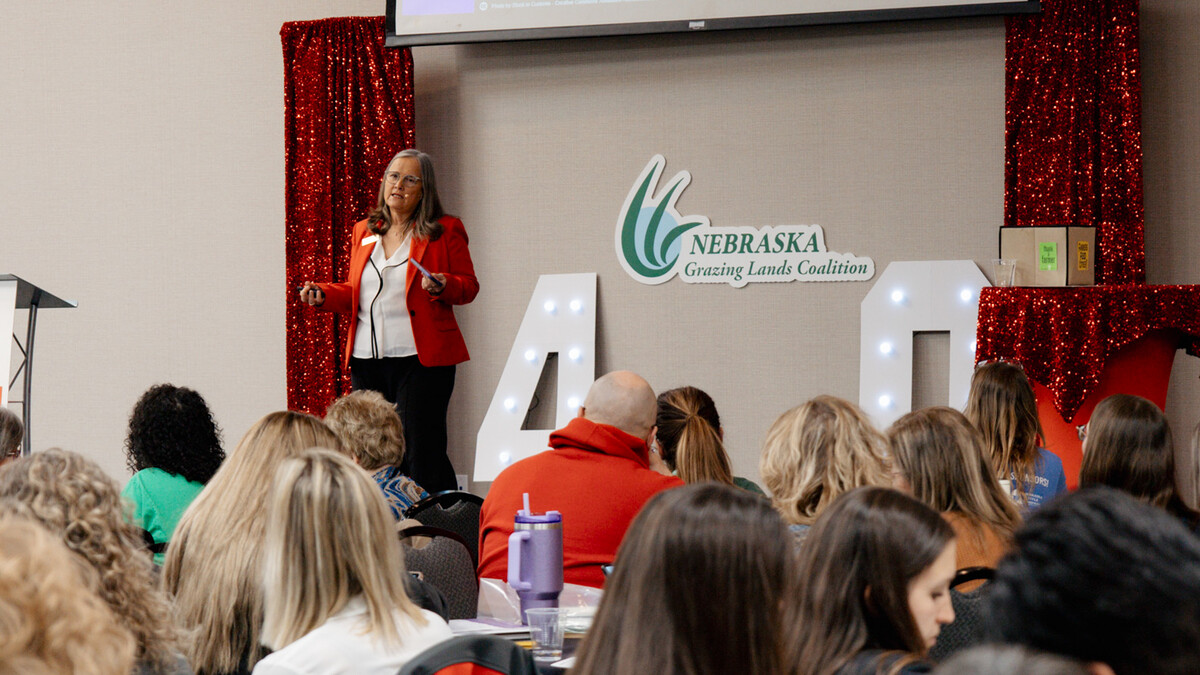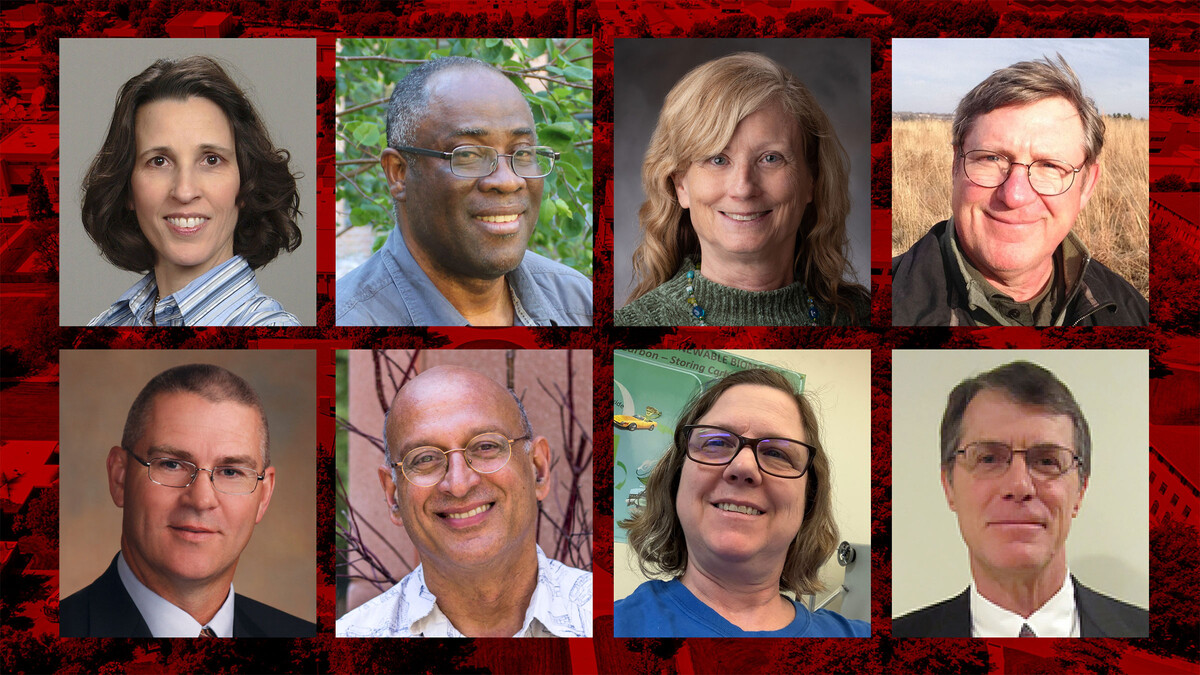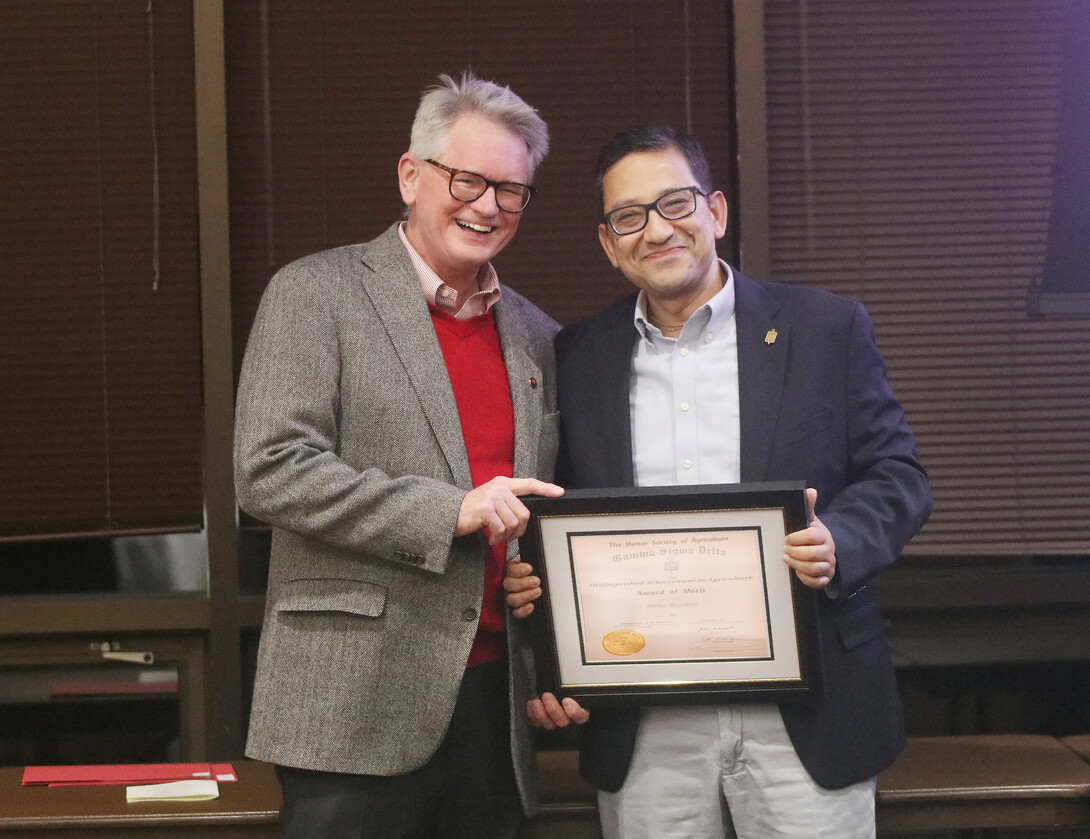
In February, Dr. Bijesh Maharjan was awarded the 2024 Gamma Sigma Delta award for Outstanding Extension Program at the annual awards reception of the Nebraska Chapter. Maharjan is an extension specialist and associate professor in the Department of Agronomy and Horticulture and is located at the University of Nebraska-Lincoln Panhandle Research, Extension, and Education Center in Scottsbluff.
Maharjan has developed a widely recognized and effective soil health and fertility program. Addressing soil fertility issues related to cropping systems in the Panhandle, such as corn, sugar beet, dry edible beans, winter wheat, and other new crops such as mint.
Sugar beet growers have used nitrogen to support crop growth. Beet production has a complex relationship with nitrogen. Over-application reduces quality and sugar extraction, ultimately reducing sugar yield and the price the grower receives. Maharjan conducted a three-year small plot experiment to optimize nitrogen application in beets and developed a new nitrogen management model based on the final sugar yield, which requires 20-30 percent less nitrogen. Lowering the cost of production for growers.
Recently, Maharjan and the Western Sugar Cooperative, which manages and serves all sugar beet acres in Nebraska, Colorado, Wyoming, and Montana, received a USDA NRCS CIG on-farm trial grant ($1,116,149) to test out a new nitrogen model on 50 different beet farmers' fields over the next four years. The potential adoption of sustainable beet nitrogen management and its impact on the economy and environmental sustainability is tremendous.
Western Sugar Cooperative has worked collaboratively with Maharjan on many agricultural projects, including using coal char from the factory to benefit crop soils. The char is a byproduct of coal combustion from its processing plants. “Western Sugar was looking at options for using the char that the factory produced, and Bijesh helped us with on-farm studies to show the benefits of using char on farm ground,” said Jerry Darnell, Vice President of Agriculture, South Region at Western Sugar. “His studies have helped Western Sugar move all of the char at the Scottsbluff factory."
In addition to soil fertility, Maharjan is well-regarded for his input into science and the adoption of soil health. Maharjan and his team coined and popularized terms such as soil health gap and soil health (management) cycle, which are critical for the comprehensive understanding and progress of the science of soil health and for promoting soil health practices. He was invited to contribute to the Nebraska Department of Agriculture Healthy Soil Task Force, created under LB243, for his expertise. The recently formed Soil Health Coalition also invited Maharjan to participate in their first funded project. The coalition's primary purpose is to advance producer-centered education and outreach in the state. Maharjan’s most significant contribution to soil health is the Nebraska Soil Health School.
Collaboration with the U.S. Department of Agriculture (USDA) Natural Resources Conservation Service (NRCS) brought about the Nebraska Soil Health School. “We wanted the opportunity to give UNL researchers a platform to showcase their important research directly to practitioners,” said Carlos Villarreal, USDA Nebraska State Soil Scientist. “Producers are empowered to implement soil health management systems on their operation, with the knowledge and support gained from these events. Producers also have a space to network with other soil health practitioners, leading scientists, and innovators.”
The school series brought together more than 600 growers, crop consultants, ag professionals, conservationists, researchers, educators, students, and other stakeholders from Nebraska and surrounding states at seven locations in two years to address maintaining and rebuilding soil health. The school also collaborated with the North Central Soil Health Nexus and the Nebraska Grazing Conference. “Bijesh is committed to understanding the science of soil health and sharing that information with a range of audiences. He is an important partner to NRCS Nebraska and Nebraska’s farmers and ranchers,” Villarreal said.
